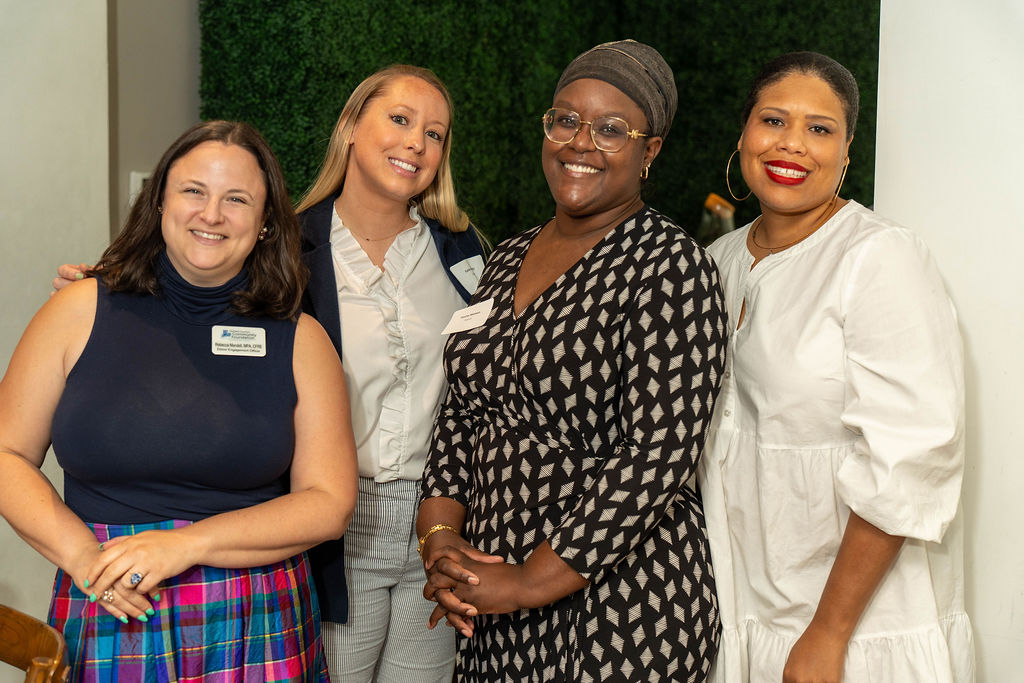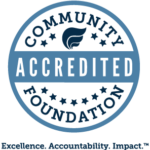Behind the Curtain: Harnessing Partnerships to Increase DEI
Sep 26, 2024
Welcome to the third blog post in a new series featuring Community Foundation team members reflecting on their personal DEI journeys and that of the Foundation overall.
As Director of Corporate and Foundation Relations at Fairfield County’s Community Foundation, Rebecca Mandell plays a critical role in advancing Diversity, Equity, and Inclusion (DEI) both within the organization and the broader philanthropic community. For Mandell, DEI isn’t just a professional mission; it’s a deeply personal journey shaped by her upbringing and life experiences.

Mandell recalls growing up in diverse public schools in Michigan, where early exposure to key DEI concepts sparked her interest. However, her understanding evolved over time as she grappled with the realities of her own privilege and the systemic inequities around her. “My parents instilled in me early on that the opportunities I had weren’t because I earned them, but because of the family I was born into,” she reflects.
Mandell is passionate about extending the learning opportunities she’s encountered through her work to more community members. Resources like the People’s Institute on Survival and Beyond, Racial Equity Institute, The Groundwater Institute, Five Frogs, and Tema Okun’s essay on White Supremacy Culture have all been critical to accelerating her journey.
DEI and Donor Engagement
Her DEI journey continues to influence her approach to donor engagement, where she advocates for relationship-building and investments in long-term systemic change. Mandell believes that philanthropy is a direct symptom of inequity and therefore obligated to remove barriers that should never have existed, underscoring the Community Foundation’s role in advancing equity and elevating community voices.
Mandell’s approach to her work has shifted to focus more on philanthropy’s role, and FCCF’s specifically, in addressing “root causes” and shifting power so that more people are able to make decisions about the communities they live in. “While we do our best at FCCF to align our approach with the perspectives of those bearing the brunt of inequities – a big part of our work is persuading donors and funders that systems change work requires faith, trust and persistence as we learn how to work with community partners in new ways—and that we all stand to benefit from a brighter, more peaceful and fulfilling future.”
“…a big part of our work is persuading donors and funders that systems change work requires faith, trust and persistence as we learn how to work with community partners in new ways – and that we all stand to benefit from a brighter, more peaceful and fulfilling future.”
Rebecca Mandell
Director, Corporate & Foundation Relations
The Role of the Community Foundation
Creating a more equitable society requires new ways of listening, deeper education on the issues and letting go of the ways things have been done in the past, says Mandell. “Our role at FCCF is to deliver programs and inspire a new way of relating to one another so that our donors feel confident to provide the grace and resources required for transformational change.”
“It’s been inspiring to see FCCF make investments to meet people where they are at and provide ongoing resources so the larger community can understand what’s actually possible – efforts like the Equity Lab, our Advocacy Training series, Allies for Equity and our In Community Conversations series are all representative of that.
“It is possible – if we have the awareness, intentionality and time – to rebuild the equitable communities we want to live in.”
Read the prior post in the series: Behind the Curtain: Crafting Equitable and Inclusive Compensation Guidelines.

